




Search websites, locations, and people

Apply Now – International Chemistry Summer School
30, 2024
Email: zhangchi@westlake.edu.cn
Phone: +86-(0)571-86886861
Office of Public Affairs
Come spend this summer with us in Hangzhou, China. The Department of Chemistry at Westlake University is now accepting applications for its fully-funded International Chemistry Summer School.
The summer school welcomes master's students and undergraduate students in their sophomore year or above majoring in Chemistry or related fields to apply.
This summer school offers a unique chance to spend two weeks with an international university community, elevate your foundational knowledge of chemistry, explore the latest scientific discoveries and innovations in the field, and experience the splendor of China.
All the classes offered during the summer school will be taught by distinguished academics and scientists from renowned institutions, such as Cornell University, Northwestern University, Pennsylvania State University, University of Wisconsin-Madison, University of California-Berkeley, National University of Singapore, and Kyoto University.
Besides taking classes, students will also gain hands-on research experience in our state-of-the-art research facilities, and experience cultural immersion through visits to historical sites, traditional cultural activities, signature artistic performances, and interactive student events
Upon completion, each student will receive a program certificate and a transcript. Outstanding students will be given priority admission to our doctoral programs and associated scholarships.
Application Deadline:
International Students: May 15th, 2024, 23:59
Domestic Students: June 20th, 2024, 23:59
(Please note: Chinese students studying abroad should apply as domestic applicants.)
Program Dates: July 8th - July 21st, 2024
Application Materials:
1) Bio page of a valid passport
2) Personal statement
3) Enrollment statement from current institution, all diploma and degree certificates
4) Transcripts of all degree studies
5) Evidence of English language proficiency (optional)
6) Other documents that prove the applicant’s academic ability (if applicable)
Scholarship: Full scholarships to successful applicants will cover the following:
- Program fee
- Insurance
- On-campus accommodation
- Round-way international air tickets (economy class)
How to Apply: Please complete the form available at http://sciencesummerschool.wjx.cn/.
Meet the Guest Faculty for the International Chemistry Summer School
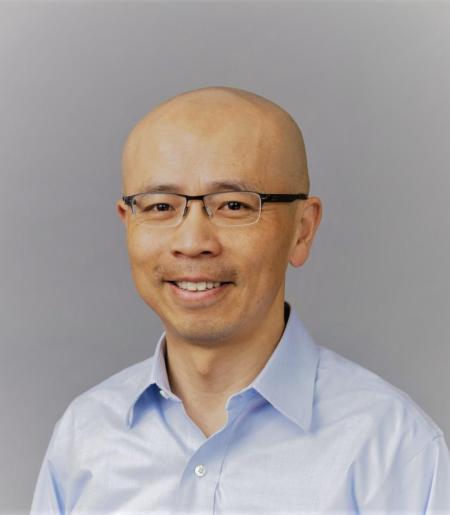
Professor Peng Chen
Peter J. W. Debye Professor, Cornell University
Professor Peng Chen is the Peter J. W. Debye Professor of Chemistry at Cornell University, a position he has held since July 2013. Chen completed his postdoctoral fellowship in Chemistry and Chemical Biology at Harvard University from 2004 to 2005. He earned his Ph.D. in Chemistry from Stanford University in January 2004, and prior to that, he worked as a Teaching and Graduate Research Assistant at the University of California, San Diego, from 1997 to 1998. Peng Chen completed his undergraduate studies, earning a B.S. in Chemistry from Nanjing University, China, from 1993 to 1997.
Professor Chen's Group develops and applies single-molecule imaging and manipulation approaches to interrogate and understand the function and dynamics of nanomaterials and biomacromolecules, with the goal of acquiring fundamental chemical knowledge for developing better strategies for energy conversion as well as for curing and preventing diseases.
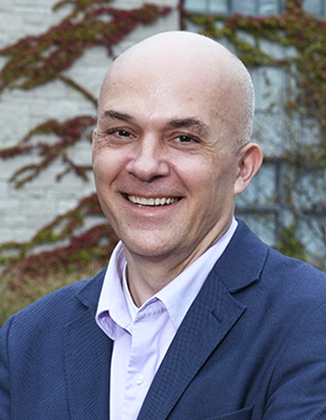
Professor Franz M. Geiger
Charles E. and Emma H. Morrison Professor, Department of Chemistry, Northwestern University
Geiger joined the chemistry faculty of Northwestern University in 2001. He received his Vordiplom in chemistry at the Technische Universitaet in 1993. He earned his PhD in 1998 at Georgetown University working with Janice Hicks as a NASA Fellow in Earth Systems Science, and was a NOAA Postdoctoral Fellow in Climate and Global Change with Mario Molina at MIT.
Using cutting-edge laser spectroscopy, mass spectrometry and computational techniques, Geiger focuses on the special role that surfaces and interfaces play in geochemistry, atmospheric chemistry and biophysics.
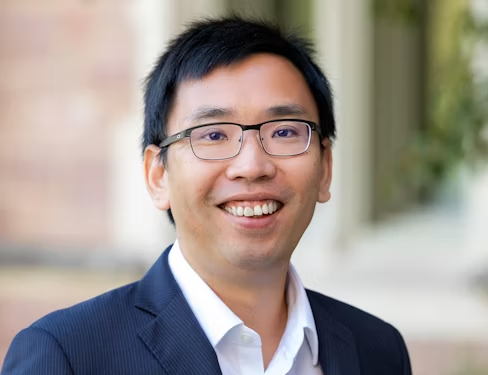
Professor Feng Jiao
Elvera and William R. Stuckenberg Professor, Washington University in St. Louis
Professor Feng Jiao holds a BS in chemistry from Fudan University in China and a PhD in chemistry from the University of St Andrews in the United Kingdom. Following the completion of his postdoctoral training at the Lawrence Berkeley National Laboratory, he joined the faculty at the University of Delaware in 2010. He was promoted to full professor in 2021 and served as the Director of the Center for Catalytic Science & Technology. In August 2023, Professor Jiao joined the Department of Energy, Environmental & Chemical Engineering at Washington University in St. Louis as the Elvera and William R. Stuckenberg Professor. He also serves as the director of the Center for Carbon Management. The Jiao research group is dedicated to developing innovative electrochemical devices to address critical energy storage and sustainability challenges.
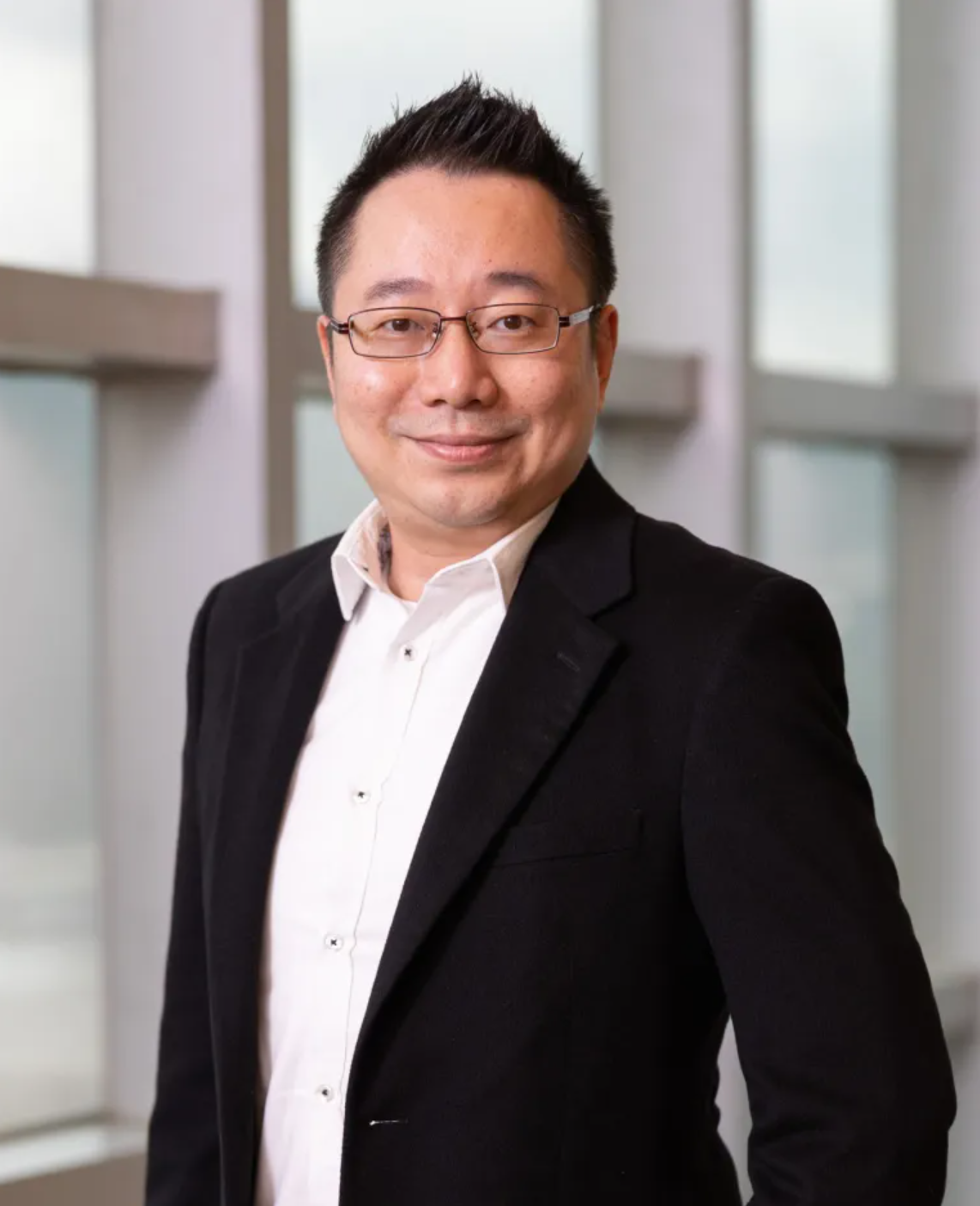
Professor KWONG Fuk Yee, Michael
Professor and Chairman of Department of Chemistry, The Chinese University of Hong Kong
Prof. KWONG Fuk Yee graduated from the Department of Chemistry of the Chinese University of Hong Kong with a Ph.D. degree and then went to the Massachusetts Institute of Technology (MIT) in the U.S. for a postdoctoral fellowship under the supervision of Prof. Stephen. L. Buchwald, an international expert in coupling reactions, before returning to Hong Kong to join Prof. Chen Xinzhi, an Academician of the Chinese Academy of Sciences (CAS), in his research team and as group leader. Prof. Kwong joined the Department of Applied Biological and Chemical Sciences and Technology of The Hong Kong Polytechnic University in 2004, was promoted to Professor in 2014, appointed Associate Head of Department in 2016, joined the Department of Chemistry of The Chinese University of Hong Kong in 2017, appointed Director of the Center for Novel Functional Molecules at the Shenzhen Institutes of The Chinese University of Hong Kong in 2018, was elected as a Young Fellow of the Hong Kong Academy of Young Scientists in 2020 and was promoted to Chairman of the Department of Chemistry in 2021.
Professor Kwong's main research areas are catalytic reactions, organic synthesis methodology, and his research work includes design and synthesis of phosphine ligands, catalytic coupling reactions, organocatalytic and C-H functionalization reactions, design and synthesis of chiral phosphine ligands, and asymmetric catalytic coupling reactions.
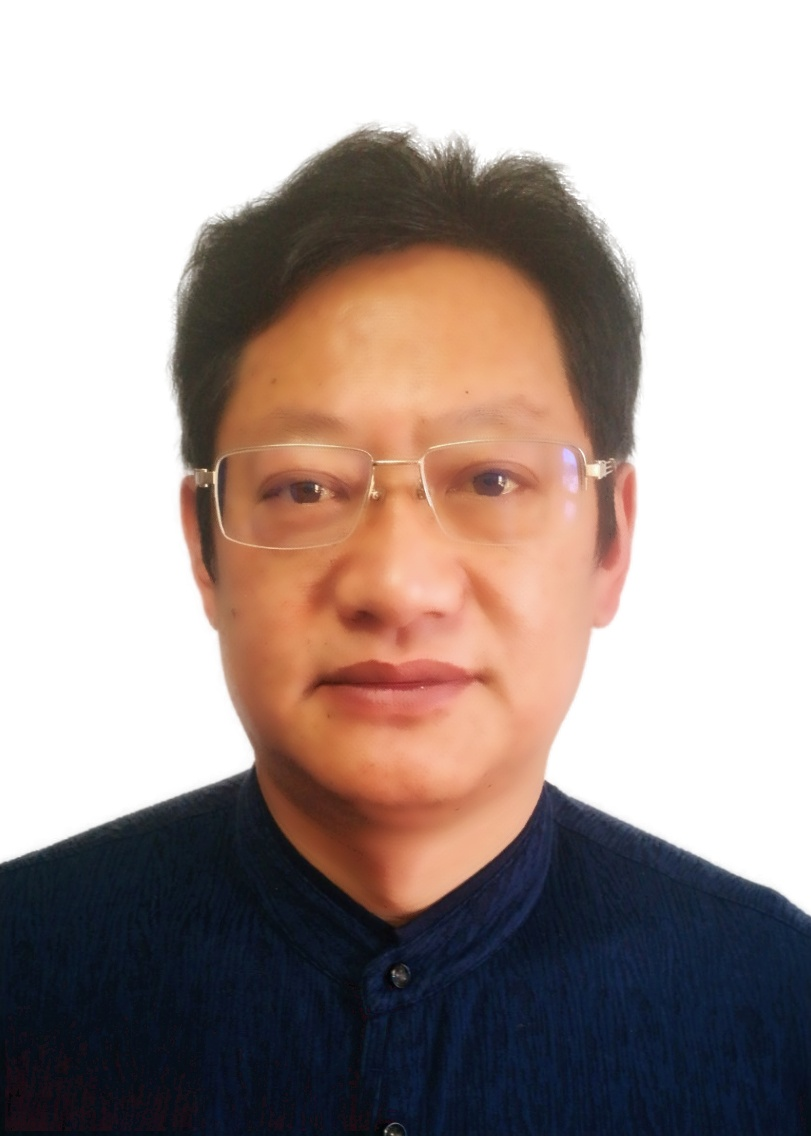
Prof. Wenjian Liu
Professor of Shandong University, Member of the International Academy of Quantum Molecular Sciences, Member of the European Academy of Sciences
Wenjian Liu received his Ph.D. degree in Physical Chemistry from Peking University in 1995, worked at the Institute for Complex Physical Systems of the Max Planck Society for the Advancement of Science in Germany from 1995-1997, taught at the Ruhr-Universität Bochum in Germany from 1998-2001, and was a Distinguished Professor at Peking University from 2001 to 2018. In 2018, he was a Distinguished Professor at Peking University. Since 2018, he has been a Chair Professor at Shandong University and Director of the Qingdao Institute for Theoretical and Computational Sciences at Shandong University. In 2019, he was elected a member of the European Academy of Sciences. Prof. Liu has been developing relativistic quantum mechanical theories and methods for the chemistry and physics of systems containing heavy elements, including several relativistic many-electron Hamiltonians (effective QED, Q4C, X2C, and sf-X2C+sd-DKHn), several variants of 4C/X2C NMR/NSR theories, relativistic/spin-adapted open-shell/linear-scaling TD-DFT, as well as a general framework for relativistic explicitly correlated methods.
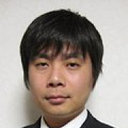
Professor Yoshiaki Nakao
Department of Material Chemistry, Kyoto University
Dr Yoshiaki Nakao was educated in chemistry at Kyoto University (PhD with Profs. Tamejiro Hiyama and Eiji Shirakawa in 2005), Yale University (with Prof. John F. Hartwig), and Max-Planck-Institut für Kohlenforschung (with Prof. Manfred T. Reetz). He has been a faculty at Kyoto University since 2002 and is currently a full professor. He is interested in developing new reactions, reagents, and catalysts for streamlining organic synthesis.
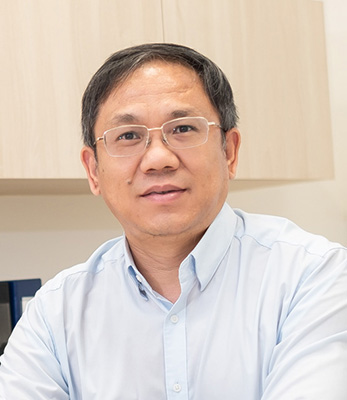
Professor Jishan Wu
Department of Chemistry, National University of Singapore
Prof. Jishan Wu received his BSc degree in chemistry from Wuhan University (1997), MSc degree from Changchun Institute of Applied Chemistry, Chinese Academy of Sciences (2000, with Xianghong Wang and Fosong Wang), and PhD degree from Max-Planck Institute for Polymer Research (2004, with Klaus Müllen). He conducted postdoc study in the University of California at Los Angeles (2005-2007, with Sir Fraser Stoddart) and then joined the Department of Chemistry, National University of Singapore (NUS) as an assistant professor in 2007. He was promoted to a full professor in 2017. In recent years, his group has done intensive research on open-shell singlet diradicaloids, 3D global aromaticity, and topological molecular carbons.
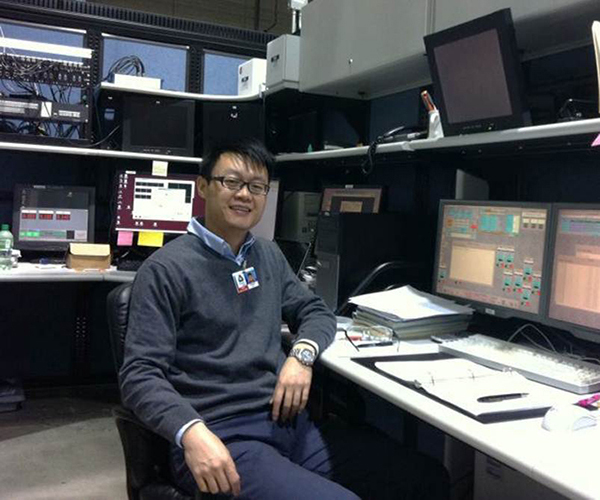
Professor Zhichuan J. Xu
School of Materials Science and Engineering, Nanyang Technological University
Zhichuan is a professor in the School of Materials Science and Engineering, Nanyang Technological University (NTU) and a Fellow of the Academy of Engineering, Singapore. He serves as the director of the Centre of Advanced Catalysis Science and Technology, and the deputy director of CN Yang programme, NTU. He received his PhD degree in Electroanalytical Chemistry and B.S. degree in Chemistry from Lanzhou University, China. His PhD training was received in Lanzhou University, Institute of Physics, CAS, and Brown University. He worked in State University of New York at Binghamton as a Research Associate and then in the Massachusetts Institute of Technology as a Postdoctoral Researcher. Dr. Xu has received several awards such as Chun-Tsung Endowment Outstanding Contribution Award - Excellent Scholar at 2018 and the Zhaowu Tian Prize for Energy Electrochemistry by International Society of Electrochemistry (ISE) in 2019.
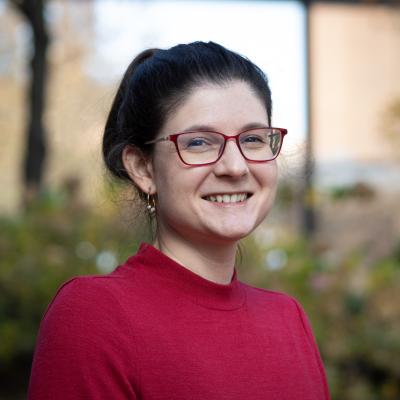
Professor Lauren Zarzar
Associate Professor of Chemistry, The Eberly College of Science, The Pennsylvania State University
Zarzar’s research interests include responsive systems and active matter, micro-optics and laser microfabrication. Prior to joining the faculty at Penn State, Zarzar was a postdoctoral researcher in chemistry at the Massachusetts Institute of Technology from 2013 to 2016. She earned a doctoral degree in chemistry at Harvard University in 2013 and bachelor's degrees in chemistry and in economics at the University of Pennsylvania in 2008.
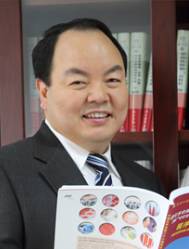
Prof. Zhou Demin
Professor, School of Pharmaceutical Sciences, Peking University
Dr. Zhou received his B.S. degree from Beijing Medical University (BMU) in 1990, Ph.D. degree from BMU/University of Tsukuba (UT) in 1996, Assistant Professor in the Department of Applied Biochemistry, UT from 1996-1998, and Postdoctoral Fellow in the Department of Chemistry/Scripps Research Institute at the University of California, Berkeley (UC Berkeley, USA) from 1999-2002, and Ph. From 2002 to 2008, he was a senior researcher, group leader and Division Head at Chugai-Roche and Immusol Biopharmaceuticals.
From 2002 to 2008, he was a senior researcher, group leader and Division Head of Chugai-Roche and Immusol Biopharmaceuticals in the U.S. In 2009, he returned to Peking University to work in the School of Pharmaceutical Sciences, and was appointed as the Dean of the School of Pharmaceutical Sciences of Peking University from 2016 to 2023.
He is mainly engaged in the research of new technologies and methods in the drug discovery and development process, and his directions include novel antiviral small molecules, protein biomolecule drugs, drug target/biomarker discovery and confirmation.
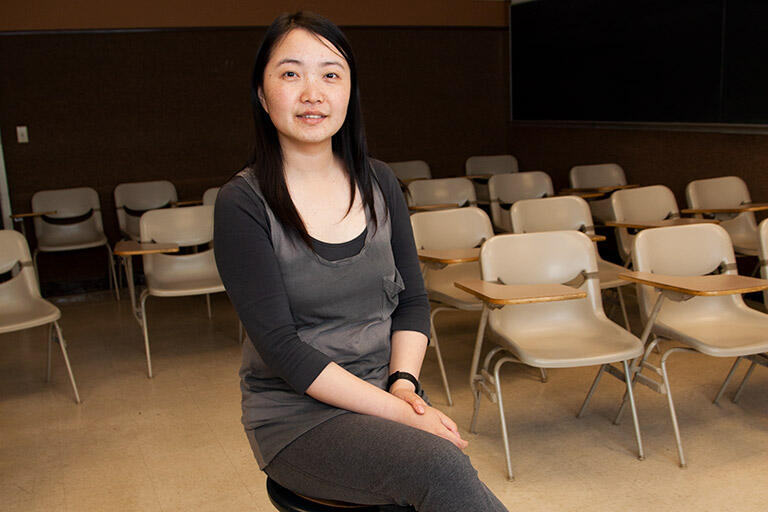
Professor Wenjun Zhang
Vice Chair of Biomolecular Engineering, The Charles Wilke Professor, University of California, Berkeley
Wenjun Zhang is the Charles R. Wilke Endowed Chair in Chemical Engineering and a professor in the College of Chemistry. Her lab is interested in biomolecular engineering for applications in bioenergy and medicine. Their research themes include genome mining for new bioactive small molecule and enzyme discovery, understanding the intriguing enzymology and programming rules underlying natural product biosynthesis, designing pathways toward combinatorial natural product biosynthesis, probing the activity and/or function of natural products, and developing new research toolkits to promote the aforementioned research. Their approach combines principles in microbiology, molecular biology, biochemistry, chemical biology, protein engineering, and metabolic engineering.
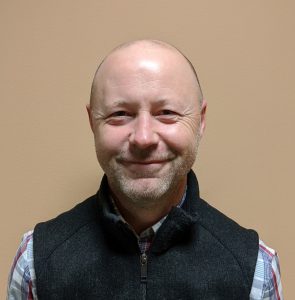
Professor Martin T. Zanni
V. W. Meloche-Bascom Professor of Chemistry, University of Wisconsin–Madison
Martin T. Zanni is the Meloche-Bascom Professor of Chemistry at the University of Wisconsin-Madison. He received his PhD from the University of California-Berkeley, working with Dan Neumark, and was an NIH Postdoctoral Fellow at the University of Pennsylvania with Robin Hochstrasser. He is one of the early pioneers of 2D IR spectroscopy and has made many technological innovations that has broadened the capabilities and scope for a wide range of multidimensional spectroscopies and microscopies.
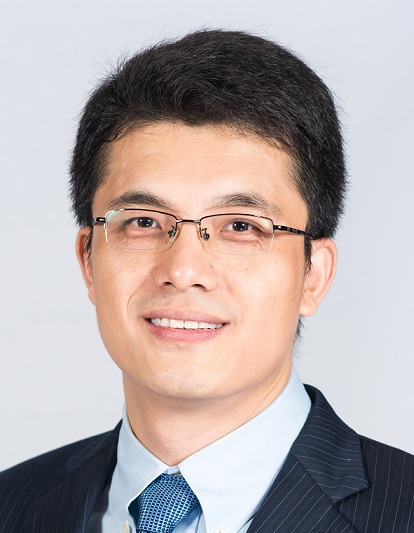
Professor Yu Zhao
Associate Professor, Department of Chemistry, National University of Singapore
Yu obtained his B.S. in Chemistry from Peking University in 2002, and his Ph.D. in Organic Chemistry from Boston College in 2008 under the guidance of Prof. Marc L. Snapper and Prof. Amir H. Hoveyda. After that, he worked with Nobel laureate Prof. Richard R. Schrock at MIT as a postdoctoral associate in the field of organometallic chemistry. In 2011, Yu was awarded the prestigious NRF fellowship from Singapore and joined Department of Chemistry at NUS as an assistant professor. He was promoted to associate professor with tenure in July 2017. His research program at NUS focuses on the discovery and development of efficient catalytic methodology to promote sustainable chemical synthesis as well as application to medicinal chemistry and material science.
Contact:
Department of Chemistry, School of Science, Westlake University
Tel: +86-571-8811-0273
Email: admission_science@westlake.edu.cn
Website: www.chem.westlake.edu.cn
RELATED




















